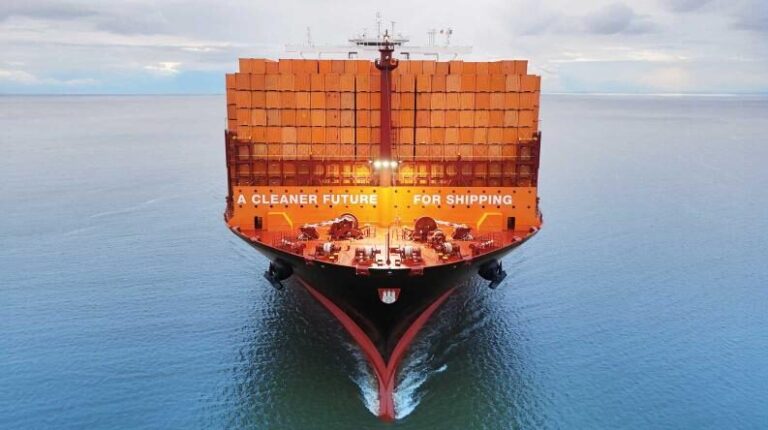DHL Global Forwarding and Hapag-Lloyd have signed a three-year framework agreement designed to cut Scope 3 greenhouse emissions by using sustainable marine fuels. The second-generation biofuels are produced from waste and residue feedstock.
The first order of 25,000 tons CO2e well-to-wake (WTW) emission reduction was said to be successfully executed in July 2025 as part of the agreement.
The agreement harnesses DHL’s ‘book and claim’ mechanism, which allows customers to claim Scope 3 emission reductions for their transportation separately from the physical use of the fuel. According to DHL, this is a useful tool for companies seeking to take sustainable action, as the supply of SMF is currently limited globally and costly.
“The signing of this three-year framework agreement marks a crucial step toward realizing our shared vision of a decarbonized shipping industry,” said Casper Ellerbaek, head of global ocean freight at DHL Global Forwarding. “We are thrilled to partner with Hapag-Lloyd in driving the adoption of sustainable marine fuels and the book and claim mechanism, ultimately empowering our customers to achieve their climate goals.”
Hapag-Lloyd has been deploying second-generation biofuels since 2020. Since 2023, it has been offering its customers the possibility to claim the resulting emission reductions through Ship Green, its emission-reduced ocean transportation product that uses biofuel blends instead of traditional fossil marine fuel oil (MFO).
“We are delighted to have completed this order with DHL, demonstrating the feasibility and effectiveness of using sustainable marine fuels to reduce Scope 3 emissions through our Ship Green product,” commented Danny Smolders, managing director global sales at Hapag-Lloyd. “Partnering with DHL shows how powerful collaboration can be. Together, we are creating real momentum in further decarbonizing supply chains, one bold step at a time.”
Both companies have set decarbonization targets, with Hapag-Lloyd aiming to achieve net zero fleet emissions by 2045 and DHL striving to reach net zero GHG emissions by 2050.
In related news, DHL Express has announced that it will use sustainable aviation fuel in its partnership with the University of Cambridge


